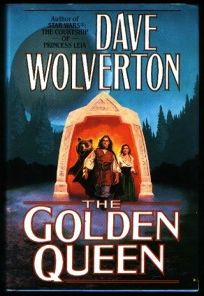Almost two and half years ago, I ended a review of Vonda N. McIntyre's The Moon and the Sun, writing about the "lost" movie:
"The movie, starring Pierce Brosnan, has been filmed but remains unreleased pending special effects, four years later.
Maybe something went wrong elsewhere, but you'd think they'd try to recoup some financial losses by releasing it as straight-to-video, or have a limited release first. Surely, book fans would flock."
The movie is now released and has grossed about a million so far in the first week (#10).
Here's a clip of a scene paired with the trailer:
The trailer doesn't give a good sense of the story, which is mirrored in this strange review from The Guardian, which says the movie's good--I would agree--but obsesses over the problem of the title. However, the reviewer may not have pondered long enough. The title is rather thematically potent, and in a few other regards.
The problem of the trailer and the review may be the movie's failing to nail its identity at the start. The movie opens as a story book, which would be useful as a children's story, a comedy, or a fairy tale. The closest the movie approaches is the lattermost, but the focus isn't on a fairy tale nature. Perhaps it would have been better done without the storybook and skipped straight to the daughter's arrival in the castle. Or perhaps better still, would be to establish the previous life and her desire to exit that life. A leisurely opening would have worked fine--or at least better. Perhaps they hadn't enough film footage for it to flow.
The main body of the film is solid, tightly woven and seems quite aware that it is a historical fantasy with strong elements of romance--perhaps "love" is the better operative word, in a broader sense than romance that only concerns a couple.
Without the opening, I'd have said the movie deserved an 8 or so out of 10. Solid entertainment with some thought.
The opening should only drop the movie to a seven, not to a five, which is where it is at the moment, unfortunately, but people were probably confused about what kind of movie they were seeing. I had the advantage, having read the book first. Hopefully, the numbers go up as it progresses.
It should be popular with the female type holding some measure of history, court, and adventure. A good date or family movie? Maybe go buy popcorn while the storybook unfolds.
The director, Sean McNamara, talks about the movie here:




![After a Lean Winter by [David Farland]](https://m.media-amazon.com/images/I/519v-sBpaJL.jpg)